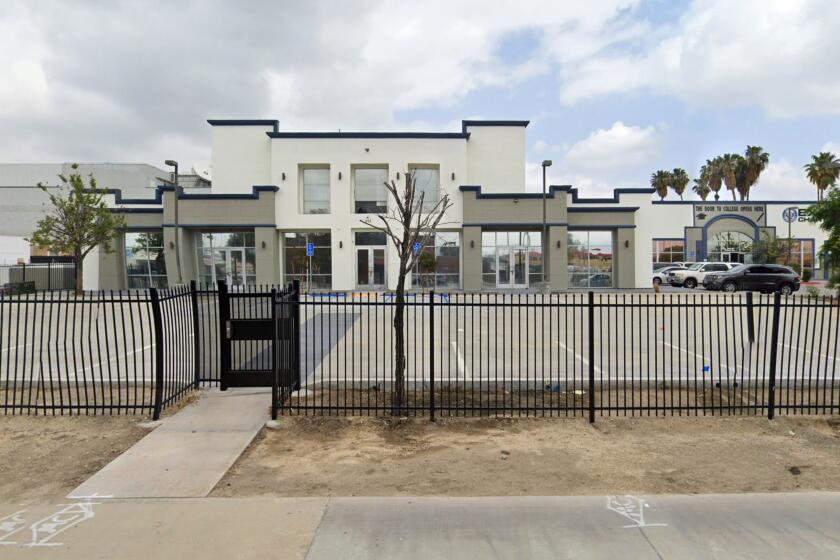R&B artist’s legal claim of innocence is disputed
The Los Angeles district attorney’s office on Friday opposed a habeas corpus petition seeking the release of a one-time R&B star who contends he was wrongly convicted of a 1993 arson murder.
In an 82-page court filing, prosecutors attacked nearly every aspect of Waymond “Suave” Anderson’s petition, asserting that he fabricated an alibi and that the evidence against him remains “overwhelming.”
Anderson, who had a nationwide hit in the 1980s with an updated version of the Motown standard “My Girl,” was convicted of torching a drug users’ hangout near USC on Sept. 18, 1993, setting a man aflame to avenge an unpaid drug debt.
In a petition filed last October, Anderson, now 40, contended that new evidence showed he was in Jackson, Miss., on the day of the killing. He produced travel receipts supporting the claim and sworn declarations from a prominent black preacher, among others, attesting to his presence there.
In its response, filed in Los Angeles County Superior Court, the district attorney’s office said the preacher had no clear recollection of Anderson’s presence and that a videotape of a church service contradicted Anderson’s claim that he attended and was introduced to the congregation.
Prosecutors said the travel receipts produced by Anderson were not authentic. They also questioned the authenticity of sworn statements, gathered by a private investigator for Anderson, in which two key trial witnesses recanted their testimony, saying they had lied under pressure from police.
The district attorney contested Anderson’s assertion that his trial lawyer was ineffective.
Anderson’s new lawyer, David Bernstein, said he intends to file a reply disputing the district attorney’s claims.
“I plan to investigate the evidence presented by the district attorney very carefully,” Bernstein said. “But I see nothing in this document that makes me question the evidence we presented in our writ. Waymond is innocent.”
In April, the California Court of Appeals ordered prosecutors to respond to the evidence submitted with Anderson’s habeas corpus petition or to release him.
chuck.philips@latimes.com
More to Read
Start your day right
Sign up for Essential California for news, features and recommendations from the L.A. Times and beyond in your inbox six days a week.
You may occasionally receive promotional content from the Los Angeles Times.






